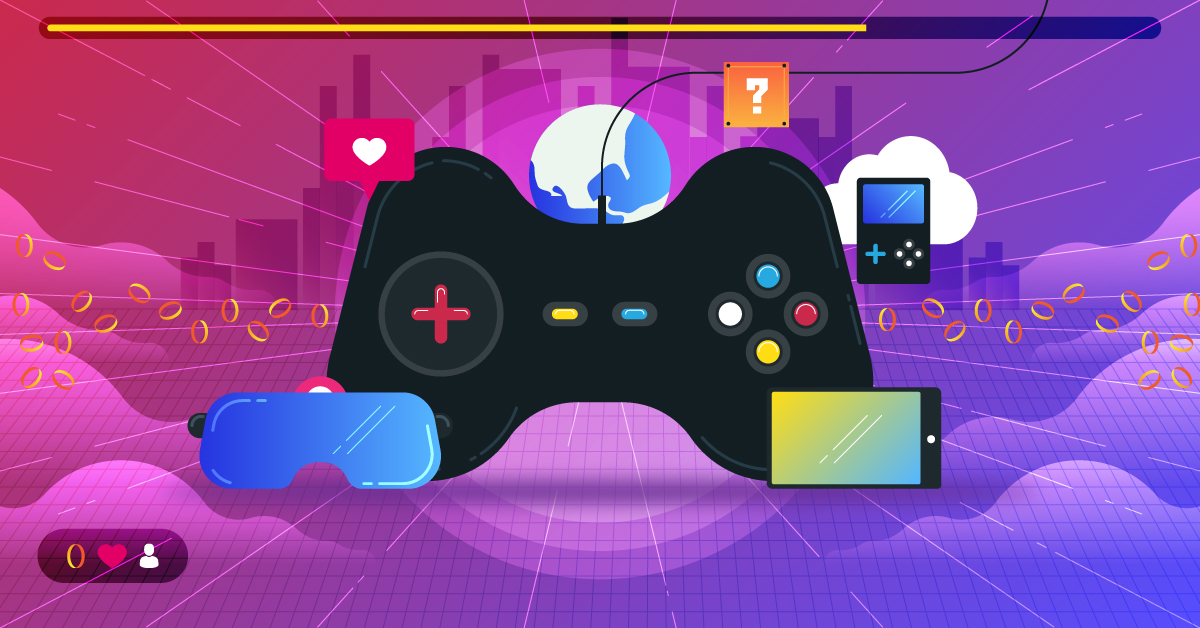Discover Australia's Finest
Explore the latest news, insights, and stories from down under.
Level Up Your Life: How Video Games Can Teach Real-World Skills
Discover how gaming can supercharge your skills and transform your life—unlock real-world potential through play today!
Unlocking Real-World Skills: What Video Games Can Teach Us
Video games are often dismissed as mere entertainment, but they offer a treasure trove of real-world skills that can benefit players in various aspects of life. Engaging in strategic gameplay fosters critical thinking and problem-solving abilities, as players must assess situations, devise plans, and make quick decisions. For instance, games like Starcraft or Civilization require players to think several steps ahead and adapt to ever-changing environments, promoting adaptability and foresight. Additionally, multiplayer games encourage collaboration and teamwork, teaching players how to communicate effectively and function as part of a group to achieve common goals.
Moreover, video games can enhance essential soft skills such as creativity, resilience, and time management. Immersive games like Minecraft inspire players to unleash their creativity by building intricate structures and exploring expansive worlds, which can translate to innovative thinking in real-life projects. Challenges in gaming often require a degree of resilience, motivating players to learn from their mistakes and persist despite setbacks. Furthermore, managing in-game resources and timelines helps cultivate effective time management skills, which are crucial for balancing personal and professional responsibilities outside the gaming realm.

From Strategy to Leadership: The Hidden Lessons in Gaming
In the realm of gaming, strategy and leadership emerge as two pivotal themes that transcend the virtual environment, offering valuable insights into real-world applications. Gamers are often faced with the challenge of decision-making under pressure, requiring them to think critically and adapt their approach on the fly. This dynamic environment cultivates skills that are directly applicable to leadership roles, such as innovation, teamwork, and resource management. In fact, the ability to anticipate opponents' moves while strategizing one's own creates a unique perspective that fosters a proactive mindset—an essential quality for any effective leader.
Moreover, lessons from gaming extend beyond mere tactics. Many games emphasize the importance of collaboration and communication, mirroring how successful teams operate in corporate settings. Players often find themselves in roles where they must motivate their peers, delegate tasks, and maintain morale to achieve common objectives. This aspect of gaming nurtures a sense of accountability and trust, which is critical in leadership positions. By analyzing these interactions, leaders can uncover hidden lessons on how to inspire their teams, navigate conflict, and drive collective success in a competitive landscape.
Can Playing Video Games Improve Your Problem-Solving Skills?
In recent years, video games have gained recognition not only as a source of entertainment but also as powerful tools for cognitive development. Research suggests that engaging with complex game environments can significantly enhance your problem-solving skills. Many games, especially those that involve strategy, require players to analyze situations, make decisions quickly, and adapt to changing scenarios. For instance, in games like Portal or The Legend of Zelda, players must navigate intricate puzzles that demand creative solutions and critical thinking.
Furthermore, playing video games fosters an environment of trial and error, where failure is not only expected but encouraged as part of the learning process. This aspect of gaming teaches players resilience and adaptability, both of which are essential for improving problem-solving skills. By approaching challenges in a low-stakes environment, gamers can develop strategies that enhance their ability to tackle real-world problems. As a result, the skills gained from video gaming can translate seamlessly into everyday challenges, making players more competent decision-makers and better at navigating complex tasks.